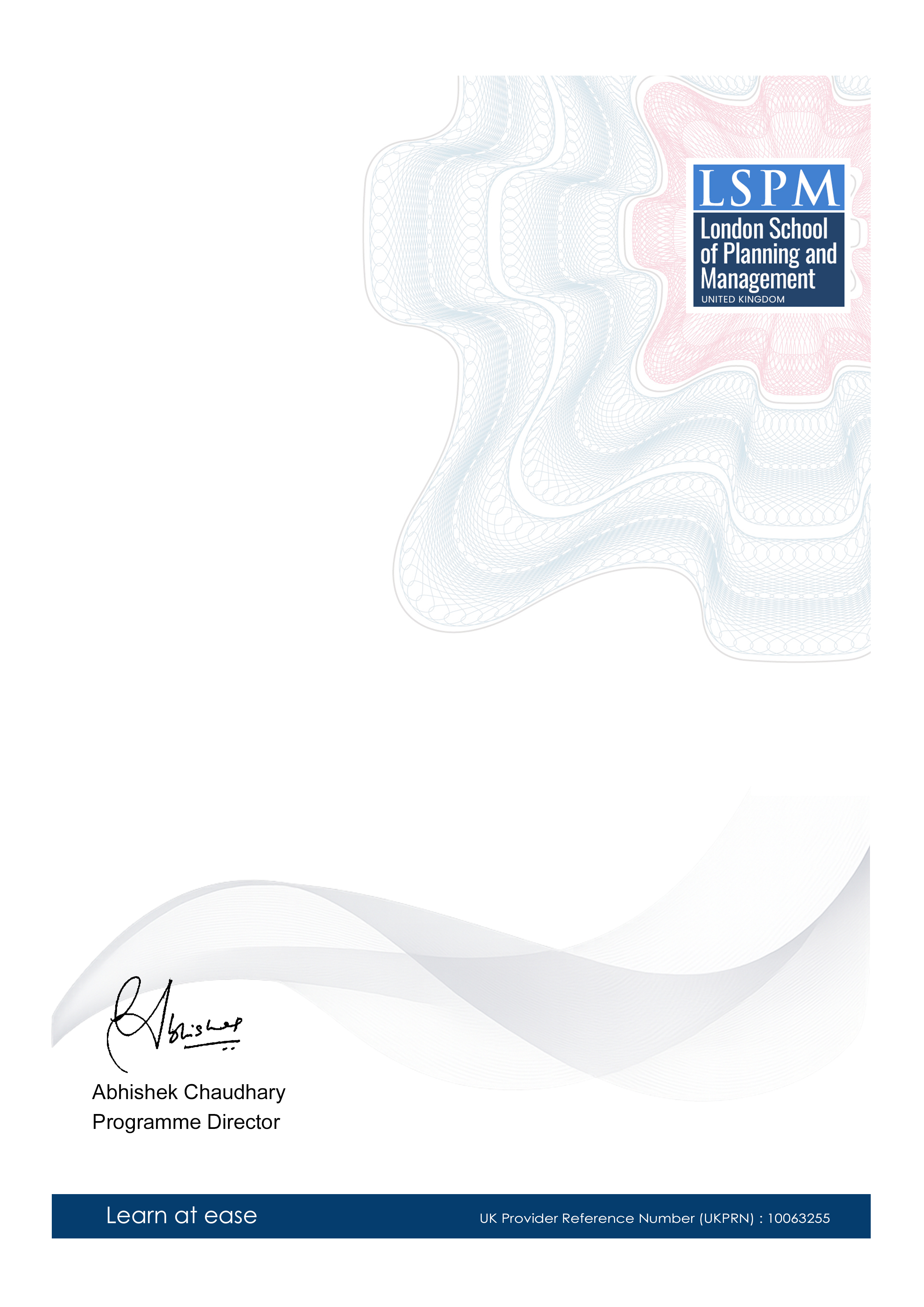Certified Specialist Programme in Sustainable Fisheries Collaboration
-- viewing nowThe Certified Specialist Programme in Sustainable Fisheries Collaboration is a comprehensive course designed to equip learners with essential skills for career advancement in the fisheries industry. This programme highlights the importance of sustainable practices and collaboration in the field, making it highly relevant in today's environmentally conscious world.
7,259+
Students enrolled
GBP £ 149
GBP £ 215
Save 44% with our special offer
About this course
100% online
Learn from anywhere
Shareable certificate
Add to your LinkedIn profile
2 months to complete
at 2-3 hours a week
Start anytime
No waiting period
Course details
• Fisheries Management Fundamentals: Understanding the basics of fisheries management, including stock assessment, management strategies, and regulatory frameworks.
• Sustainable Fishing Practices: Exploring techniques for sustainable fishing, such as selective fishing methods, bycatch reduction, and area closures to protect vulnerable habitats.
• Fisheries Collaboration: Examining the importance of collaboration in sustainable fisheries, including partnerships between governments, fisheries, NGOs, and other stakeholders.
• Fisheries Policy and Governance: Understanding the policy and governance landscape of sustainable fisheries, including international agreements, national policies, and local regulations.
• Fisheries Economics: Exploring the economic aspects of sustainable fisheries, including the costs and benefits of sustainable practices, market-based approaches, and economic incentives for conservation.
• Climate Change and Fisheries: Examining the impacts of climate change on fisheries and identifying strategies for climate adaptation and mitigation.
• Fisheries Technology: Investigating the role of technology in sustainable fisheries, including data collection and analysis, monitoring and enforcement, and the use of new fishing gear and equipment.
• Fisheries and Social Responsibility: Exploring the social and ethical dimensions of sustainable fisheries, including labor rights, food security, and community engagement.
• Fisheries Case Studies: Analyzing real-world examples of successful sustainable fisheries collaborations, including best practices and lessons learned.
Career path
Entry requirements
- Basic understanding of the subject matter
- Proficiency in English language
- Computer and internet access
- Basic computer skills
- Dedication to complete the course
No prior formal qualifications required. Course designed for accessibility.
Course status
This course provides practical knowledge and skills for professional development. It is:
- Not accredited by a recognized body
- Not regulated by an authorized institution
- Complementary to formal qualifications
You'll receive a certificate of completion upon successfully finishing the course.
Why people choose us for their career
Loading reviews...
Frequently Asked Questions
Course fee
- 3-4 hours per week
- Early certificate delivery
- Open enrollment - start anytime
- 2-3 hours per week
- Regular certificate delivery
- Open enrollment - start anytime
- Full course access
- Digital certificate
- Course materials
Get course information
Earn a career certificate

